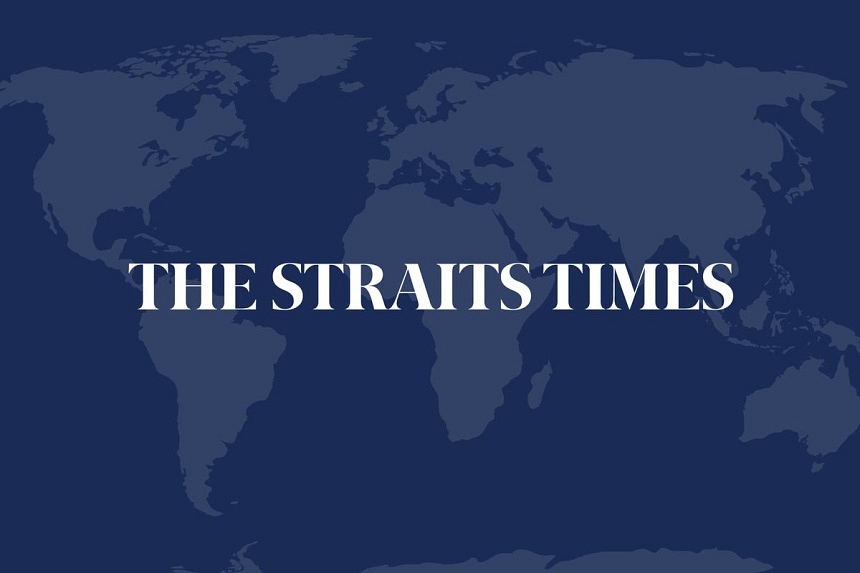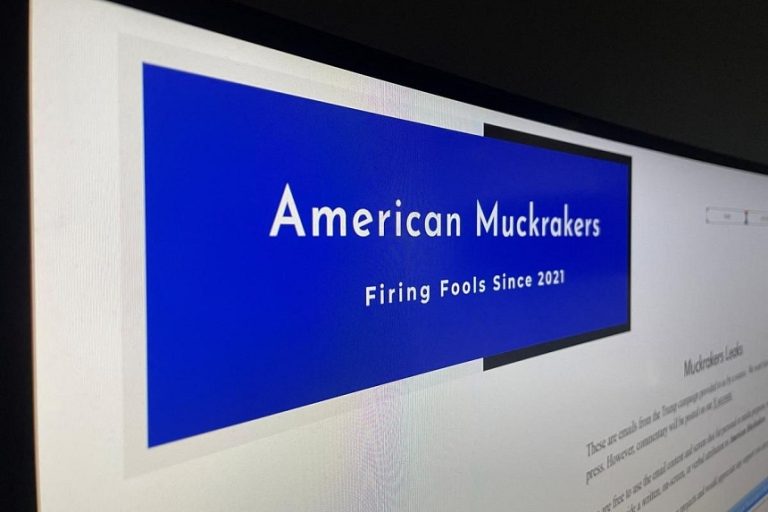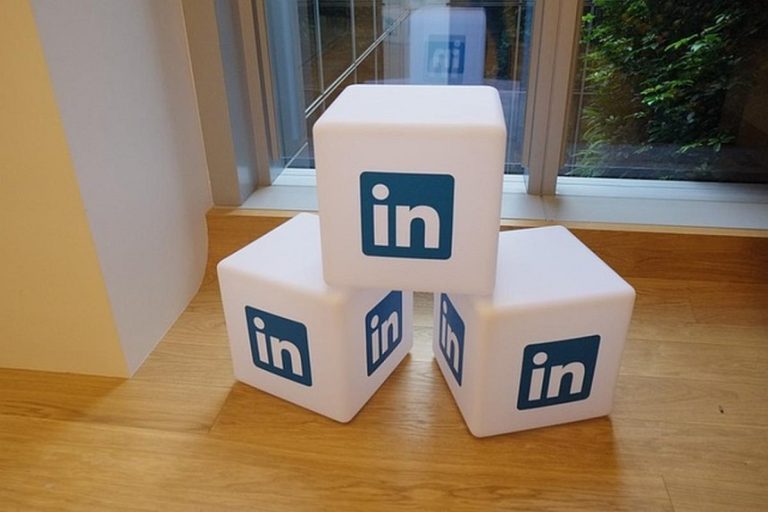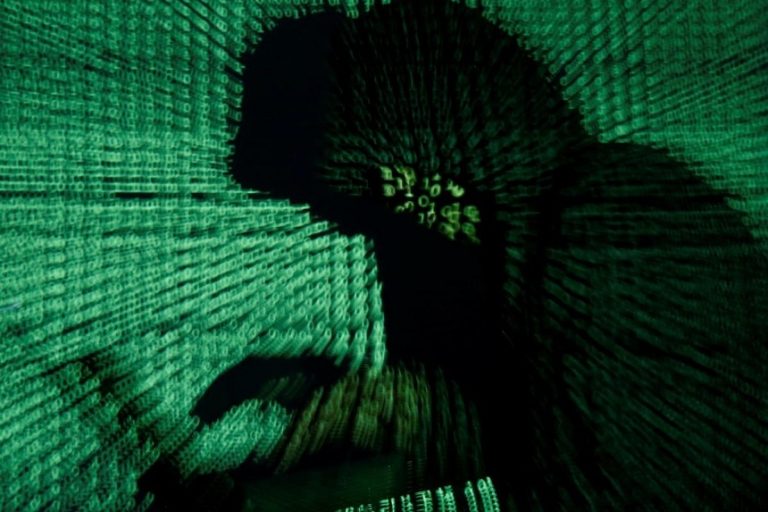
Similar Posts

WASHINGTON – The accused Iranian hacking group who intercepted Republican U.S. presidential candidate Donald Trump’s campaign emails have finally found some success in getting their stolen material published after initially failing to interest the mainstream media.
In recent weeks, the hackers began peddling Trump emails more widely to one Democratic political operative, who has posted a trove of material to the website of his political action committee, American Muckrakers, and to independent journalists, at least one of whom posted them on the writing platform Substack. The latest material shows Trump campaign communications with external advisers and other allies, discussing a range of topics leading up to the 2024 election.
The hackers’ activities tracked by Reuters provide a rare glimpse into the operations of an election interference effort. They also demonstrate Iran remains determined to meddle in elections despite a September U.S. Justice Department indictment accusing the leakers of working for Tehran and using a fake persona.
The indictment alleged that an Iranian-government linked hacking group, known as Mint Sandstorm or APT42, compromised multiple Trump campaign staffers between May and June by stealing their passwords. In a Homeland Security advisory published earlier this month, the agency warned that the hackers continue to target campaign staff. If found guilty, they face prison time and fines.
The Department of Justice indictment said the leakers were three Iranian hackers working with Iran’s Basij paramilitary force whose voluntary members help the regime to enforce its strict rules and to project influence. Attempts to reach the hackers identified by name in the indictment via email and text message were unsuccessful.
In conversations with Reuters, the leakers – who collectively use the fake persona “Robert” – did not directly address the U.S. allegations, with one saying “Do you really expect me to answer?!”
“Robert” is the same fake persona referred to in the U.S. indictment, according to FBI emails sent to journalists and reviewed by Reuters.
Iran’s mission to the United Nations said in a statement that reports of the country’s involvement in hacking against the U.S. election were “fundamentally unfounded, and wholly inadmissible,” adding that it “categorically repudiates such accusations.” The FBI, which is investigating Iran’s hacking activity against both presidential campaigns in this election, declined to comment.
David Wheeler, the founder of American Muckrakers, said the documents he shared were authentic and in the public interest. Wheeler said his goal was to “expose how desperate the Trump campaign is to try to win” and to provide the public with factual information. He declined to discuss the material’s origin.
Without making any specific references, the Trump campaign said earlier this month that Iran’s hacking operation was “intended to interfere with the 2024 election and sow chaos throughout our democratic process,” adding any journalists reprinting the stolen documents “are doing the bidding of America’s enemies.”
In 2016, Trump took a different position when he encouraged Russia to hack into Hillary Clinton’s emails and provide them to the press.
LEAK OPERATION
The leak operation started around July when an anonymous email account, [email protected], began communicating with reporters at several media outlets, using the Robert moniker, according to two people familiar with the matter. They initially contacted Politico, the Washington Post and the New York Times, promising damning internal information about the Trump campaign.
In early September, the accused Iranian hackers used a second email address, [email protected], in a fresh round of overtures, including to Reuters and at least two other news outlets, the two people familiar with the matter, said.
At the time, they offered research compiled with public information by the Trump campaign into Republican politicians JD Vance, Marco Rubio and Doug Burgum, all of whom were under consideration as Trump’s running mate.
The vice presidential reports were authentic, a person familiar with the Trump campaign told Reuters. Neither Politico, the Washington Post, the New York Times, nor Reuters published stories based on the reports.
New York Times spokesperson Danielle Rhoades Ha, said the newspaper only published articles based on hacked material “if we find newsworthy information in the materials and can verify them.”
In an email, the Washington Post referred Reuters to past comments made by its executive editor, Matt Murray, who said the episode reflected the fact that news organizations “aren’t going to snap at any hack” provided to them. A spokesperson for Politico said the origin of the documents was more newsworthy than the leaked material. Reuters did not publish this material because the news agency did not believe it was newsworthy, a spokesperson said.
Both AOL email accounts identified by Reuters were taken offline in September by its owner Yahoo, which worked with the FBI before the indictment to trace them to the Iranian hacker group, according to two people familiar with the investigation. Yahoo did not respond to a request for comment.
Before losing email access, Robert suggested reporters might need an alternate contact and offered a telephone number on the encrypted chat application Signal. Signal, which is more difficult to monitor by law enforcement, did not return messages seeking comment.
Some senior U.S. intelligence and law enforcement officials have said that Iran’s interference efforts this election cycle are focused on denigrating Trump as they hold him responsible for the 2020 American drone assassination of former Iranian military general Qassem Soleimani.
Thus far, the already-published leaks do not appear to have changed the public dynamics of the Trump campaign.
MUCKRAKERS
On Sept. 26, North Carolina-based American Muckrakers, began publishing internal Trump campaign emails. Active since 2021, the PAC has a history of publicizing unflattering material about high-profile Republicans. According to public disclosure reports, it is funded through individual, small-dollar donors from around the country.
On its website, American Muckrakers said the leaks came from “a source,” but, ahead of the publication last month, the group publicly asked Robert to get in touch. “HACKER ROBERT, WHY THE F DO YOU KEEP SENDING THE TRUMP INFORMATION TO CORPORATE MEDIA?” the group said in a post to X. “Send it to us and we’ll get it out.”
When asked whether his source was the alleged Iranian persona Robert, Wheeler said “that is confidential” and that he had “no confirmation of the source’s location.” He also declined to comment on whether the FBI had warned him that the communication was the product of a foreign influence operation.
In one example, Muckrakers published material on Oct. 4th purporting to show an unspecified financial arrangement with lawyers representing former Presidential candidate Robert F. Kennedy Jr. and Trump. RFK Jr. attorney Scott Street, said in an email to Reuters he could not speak publicly about the incident. Reuters confirmed the authenticity of the material.
Muckrakers subsequently published documents from Robert about two high-profile races. It included alleged campaign communication about North Carolina Republican gubernatorial candidate Mark Robinson and Florida Republican representative Anna Paulina Luna, both of whom were endorsed by Trump.
The exchange about Robinson concerned an attempt by Republican adviser W. Kirk Bell, to seek guidance from the Trump camp after the scandal over comments attributed to Robinson on a pornographic forum. Robinson has previously denied the comments. The other message came from a Republican adviser sharing information with the campaign about Luna’s personal life.
Robinson and Luna’s campaigns did not return messages seeking comment.
One of the few journalists contacted by Robert who did publish material was independent national security reporter Ken Klippenstein, who posted the vice presidential research documents to Substack late last month. Robert confirmed to Reuters that they gave the material to Klippenstein.
Substack did not respond to a question about its policies concerning hacked material.
After the story, Klippenstein said FBI agents contacted him over his communication with Robert, warning that they were part of a “foreign malign influence operation.” In a post, Klippenstein said the material was newsworthy and he chose to publish it because he believed the news media should not be a “gatekeeper of what the public should know.”
A spokesperson for Reuters, which received similar notifications from the FBI, said, “We cannot comment on our interactions, if any, with law enforcement.” An FBI spokesperson declined to comment on its media notification effort.
Wheeler said he had new leaks in store “soon” and that he would continue to publish similar documents as long as they were “authentic and relevant.” REUTERS

SEOUL – Pro-Russia hacking groups have conducted cyberattacks against South Korea after North Korea dispatched troops to Russia to support its war against Ukraine, Seoul’s presidential office said on Friday.
The office held an emergency intra-agency meeting after detecting denial-of-service attacks on some government and private websites in recent days.
Some of the websites experienced temporary outages but there was no serious damage, it said, adding that the government will strengthen its ability to respond to such attacks.
“Cyber attacks by pro-Russian hacktivist groups on our country have occurred intermittently in the past, but have become more frequent since North Korea dispatched troops to Russia and participated in the Ukraine war,” the office said in a statement.
Seoul and Washington have said there are more than 10,000 North Korean soldiers in Russia, and U.S. officials and Ukraine’s defence minister said some of them have engaged in combat in Kursk, near the Ukraine border.
The new military cooperation between Pyongyang and Moscow has been condemned by South Korea, the United States and Western allies. Ukrainian President Volodymyr Zelenskiy said on Tuesday that the first battles between his country’s military and North Korean troops “open a new page in instability in the world.” REUTERS

DUBLIN – Ireland’s data protection commission has fined LinkedIn €310 million (S$442 million) for illegally processing the personal data of users within the European Union to deliver targeted advertising.
The decision also includes an order for Microsoft Corp-owned LinkedIn to bring its data processing into compliance with the EU’s General Data Protection Regulation (GDPR), according to a statement by the Irish Data Protection Commission (IDPC) on Oct 24.
Deputy Commissioner Graham Doyle said in a statement that LinkedIn’s processing of personal data without an appropriate legal basis was a “clear and serious violation of data subjects’ fundamental right to data protection”.
It is the sixth-largest fine to be issued under GDPR since it was introduced in 2018.
The Irish regulator has issued hefty fines to several social media companies for GDPR violations in recent years.
Facebook and Instagram parent Meta Platforms Inc has faced the brunt of the penalties, including a record €1.2 billion charge in May 2023 for transferring EU users’ data to the US. The commission fined ByteDance Ltd’s TikTok €345 million in September 2023 over its handling of children’s data.
It is part of a broader crackdown on Big Tech companies by the EU over a range of issues including data privacy, competition and disinformation.
LinkedIn said the case relates to claims from 2018 about some of its digital advertising efforts in the EU.
“While we believe we have been in compliance with the General Data Protection Regulation (GDPR), we are working to ensure our ad practices meet this decision by the IDPC’s deadline,” a spokesperson said in a statement.
Ireland’s data protection commission launched an inquiry into LinkedIn’s data processing practices following a complaint made to the French data regulator. LinkedIn, like many other big tech companies, has its European headquarters in Ireland, which means that local regulators are tasked with enforcing EU rules. BLOOMBERG

An Iranian hacking group is actively scouting U.S. election-related websites and American media outlets as Election Day nears, with activity suggesting preparations for more “direct influence operations,” according to a Microsoft blog published on Wednesday.
The hackers – dubbed Cotton Sandstorm by Microsoft and linked to Iran’s Islamic Revolutionary Guard Corps – performed reconnaissance and limited probing of multiple “election-related websites” in several unnamed battleground states, the report said. In May, they also scanned an unidentified U.S. news outlet to understand its vulnerabilities.
U.S. Vice President Kamala Harris, the Democratic candidate, faces Republican rival Donald Trump in the Nov. 5 presidential election, which polls suggest is an extremely tight race.
“Cotton Sandstorm will increase its activity as the election nears given the group’s operational tempo and history of election interference,” researchers wrote. The development is particularly concerning because of the group’s past efforts, they said.
A spokesperson for Iran’s mission to the United Nations said that “such allegations are fundamentally unfounded, and wholly inadmissible.”
“Iran neither has any motive nor intent to interfere in the U.S. election,” the spokesperson said.
In 2020, Cotton Sandstorm launched a different cyber-enabled influence operation shortly before the last presidential election, according to U.S. officials. Posing as the right-wing “Proud Boys,” the hackers sent thousands of emails to Florida residents, threatening them to “vote for Trump or else!”
The group also released a video on social media, purporting to come from activist hackers, where they showed them probing an election system. While that operation never affected individual voting systems, the goal was to cause chaos, confusion and doubt, senior U.S. officials said at the time.
Following the 2020 election, Cotton Sandstorm also ran a separate operation that encouraged violence against U.S. election officials who had denied claims of widespread voter fraud, Microsoft said.
The Office of the Director of National Intelligence, which is coordinating the U.S. federal effort to protect the election from foreign influence, referred Reuters to a past statement that said: “Foreign actors — particularly Russia, Iran, and China — remain intent on fanning divisive narratives to divide Americans and undermine Americans’ confidence in the U.S. democratic system.” REUTERS

WASHINGTON – The woman who dubbed herself the “Crocodile of Wall Street” and “Razzlekhan” in rap videos was ordered to serve 18 months behind bars for helping her hacker husband launder cryptocurrency he stole from the Bitfinex exchange.
Heather Morgan, 34, was sentenced on Nov 18 in Washington federal court. Last week, her husband, Ilya Lichtenstein, got five years in prison for his role in the scheme, which stemmed from his 2016 hack of the exchange and the theft of Bitcoin currently worth billions of dollars. Both pleaded guilty last year.
Morgan wasn’t involved in the hack, and her husband said he recruited her to help hide the loot he’d stolen. They could have faced more prison time, but he agreed to aid the United States in other crypto prosecutions and she persuaded him to cooperate with the authorities.
The Verge, which called her “crypto’s most embarrassing rapper”, said she made crypto-themed rap videos under the name Razzlekhan. The whole story is expected to be immortalized in a Netflix documentary series and a film called Dutch & Razzlekhan, the tech news website said.
According to prosecutors, Morgan and Lichtenstein engaged in complex money-laundering techniques, including creating accounts under fictitious identities, moving the stolen proceeds in small amounts, and breaking up the trail of transactions by depositing and withdrawing funds from crypto exchanges and darknet markets. They purchased nonfungible tokens, gold and Walmart gift cards, court records show.
At the time of the hack, the stolen Bitcoin was worth about US$71 million (S$95 million). Now it’s valued in the billions of dollars as the price of Bitcoin has surged from US$580 to more than US$90,000. The couple laundered 21 per cent of what was stolen in the Bitfinex hack, according to the government. BLOOMBERG

WASHINGTON – Russian hackers are going after US government officials, defence workers and others in a new email phishing campaign targeting thousands of people, according to Microsoft Corp.
The hackers have sent “a series of highly targeted spearphishing emails” to thousands of people in more than 100 organisations since Oct 22, according to a blog post from Microsoft Threat Intelligence published on Oct 29.
The latest campaign will add to mounting concerns over US failures to outwit suspected Russian and Chinese hackers.
The FBI said on Oct 25 it is investigating unauthorised access by Chinese state-affiliated hackers targeting the commercial telecommunications sector.
In some of the emails that were part of the latest campaign, the senders impersonated Microsoft employees, according to the blog.
Spearphishing involves sending tailored emails to individuals, including links to malicious websites that can then steal information.
It wasn’t immediately clear how many of the attacks, if any, were successful.
Microsoft has said the attacks are perpetrated by a sophisticated Russian nation-state group it calls Midnight Blizzard, which US and UK governments have connected to the SVR, the Russian foreign intelligence service.
The company said in January that the group attacked its corporate systems, getting into a “small number” of email accounts, including senior leadership and employees who work in cybersecurity and legal.
In April, US federal agencies were ordered to analyse emails, reset compromised credentials and work to secure Microsoft accounts.
At the time, the Cybersecurity and Infrastructure Security Agency (Cisa) said the incident represented a “grave and unacceptable risk” to agencies, according to the April directive.
Cisa and US State Department didn’t immediately respond to requests for comment.
The Russian Embassy in Washington didn’t immediately respond to a request for comment. BLOOMBERG
